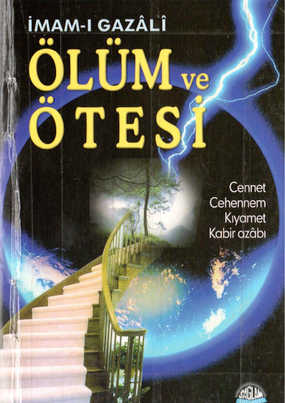

Mahşerin Dördüncü Atlısı Salgın ve Bulaşıcı Hastalıklar Tarihi. Qualitative and descriptive research: Data type versus data analysis. International Journal of Cultural Studies, 16, 169–187. Polymedia: Towards a new theory of digital media in interpersonal communication. Revista de Estudos Da Religião (4), 100–107. Ritual: Theoretical Issues in the Study of Religion. Koronavirüs Salgını Yeni Tedbirler (2020), (Date of access: 22 October 2020).Modernity, Secularism and Islam: The Case of Turkey. Salgın Hastalık Döneminde Alınan Tedbirlerin Fıkhî Analizi. Religious Institutions under the Pressure of COVID-19: Traditional Policies and Delayed Crisis Management. Journal for Early Modern Cultural Studies, 10(2), 45-64.

Contagion in Islamic Lands: Responses from Medieval Andalusia and North Africa. COVID-19, Islamic Civil Society and State Capacity In Indonesia.Perspective, Perspective, (39). (2020a), The Priority of Forgiving in Islamic during Covid 19 Pandemic from an Islamic Perspective, International Journal of Psychosocial Rehabilitation. Mohd Noor, K., A.Y., M.I.A.M, Mohamed, S. “Secularism and Islamism in Turkey: The making of elites and counter-elites,” The Middle East Journal, 51(1), pp. Peygamber'in Hastalıklara Karșı Tutumu.Van Yüzüncü Yıl Üniversitesi Sosyal Bilimler Enstitüsü Dergisi, Salgın Hastalıklar Special Issue, 625-640 Diyanet İşleri Başkanlığı Kuruluş Ve Görevleri Hakkında Kanun, (1965). DIB, (2020f) Diyanet İşleri Başkanı Erbaş'tan Cuma Mesajı Dinhizmetleri (2020a) (sesli-hutbe-t%C3%BCrk%C3%A7e-almanca-ingilizce-arap%C3%A7a) (Date of access: 28 March 2020).
 DIB, (2020e) Personelimiz Vefa Koordinasyon Grupları'nın Içerisinde Insanımıza Hizmet Ediyor. DIB, (2020d) Din İşleri Yüksek Kurulu’ndan Cuma Namazıyla Ilgili Açıklama. DIB, (2020c) Diyanet İşleri Başkanlığı’ndan Cuma Namazı Ile Ilgili Açıklama. Diyanet İşleri Başkanı Erbaş, Koronavirüsle Ilgili Tedbirleri Açıkladı Din İşleri Yüksek Kurulu’ndan Cuma Namazıyla Ilgili Açıklama. Epidemics, Pandemics, and the Doomsday Scenario. The Rise of Diyanet: the Politicization of Turkey’s Directorate of Religious Affairs. HERD: Health Environments Research & Design Journal, 9(4), 16–25. Qualitative Descriptive Methods in Health Science Research. Yüzüncü Yıl Üniversitesi Sosyal Bilimler Enstitüsü Dergisi, Salgın Hastalıklar Özel Sayısı, 599-624. Küresel Salgın Zamanında Din Görevlileri Gözüyle Diyanet İşleri Başkanlığı’nın Yaygın Din Hizmeti ve Eğitimi. British Journal of Social Psychology, 41: 171-188. (2002), Henri Tajfel's ‘Cognitive Aspects of Prejudice’ And The Psychology of Bigotry. Social Identity Theory and Organization, Academy Of Management Review, 14 (1). In The COVID-19 Pandemic in the Middle East and North Africa (Pp: 51-54), Middle political Science. (2020) COVID in the Maghreb: Responses and Impacts. In this respect, this study aims to define the pandemic through the eyes of the official Islam in Turkey, to locate the individual and define his/her elbow room, and to analyze the reorganized daily life and new dimensions of the reconstructed conscious based on new fatwa with a “qualitative descriptive” method. It is observed that “Islamic plague culture” and the previous experiences about similar disasters have been taken as references throughout the pandemic. There has been intense cooperation between religion and politics in Turkey in terms of the policies regarding the recent pandemic in the country the official Turkish Islam has a great function in legalizing the decisions of the government by refering to religious sources and provide continuance of the indivuduals’ belonging with DİYANET. Understanding the attempt to explain and interpret the virus in the eyes of the Muslims, and the process followed by that discourse throughout the pandemic are the focus points of this study. Abstract: The purpose of this study is to analyze the discourse and the policies of the official religion, Islam, in Turkey about the pandemic.
DIB, (2020e) Personelimiz Vefa Koordinasyon Grupları'nın Içerisinde Insanımıza Hizmet Ediyor. DIB, (2020d) Din İşleri Yüksek Kurulu’ndan Cuma Namazıyla Ilgili Açıklama. DIB, (2020c) Diyanet İşleri Başkanlığı’ndan Cuma Namazı Ile Ilgili Açıklama. Diyanet İşleri Başkanı Erbaş, Koronavirüsle Ilgili Tedbirleri Açıkladı Din İşleri Yüksek Kurulu’ndan Cuma Namazıyla Ilgili Açıklama. Epidemics, Pandemics, and the Doomsday Scenario. The Rise of Diyanet: the Politicization of Turkey’s Directorate of Religious Affairs. HERD: Health Environments Research & Design Journal, 9(4), 16–25. Qualitative Descriptive Methods in Health Science Research. Yüzüncü Yıl Üniversitesi Sosyal Bilimler Enstitüsü Dergisi, Salgın Hastalıklar Özel Sayısı, 599-624. Küresel Salgın Zamanında Din Görevlileri Gözüyle Diyanet İşleri Başkanlığı’nın Yaygın Din Hizmeti ve Eğitimi. British Journal of Social Psychology, 41: 171-188. (2002), Henri Tajfel's ‘Cognitive Aspects of Prejudice’ And The Psychology of Bigotry. Social Identity Theory and Organization, Academy Of Management Review, 14 (1). In The COVID-19 Pandemic in the Middle East and North Africa (Pp: 51-54), Middle political Science. (2020) COVID in the Maghreb: Responses and Impacts. In this respect, this study aims to define the pandemic through the eyes of the official Islam in Turkey, to locate the individual and define his/her elbow room, and to analyze the reorganized daily life and new dimensions of the reconstructed conscious based on new fatwa with a “qualitative descriptive” method. It is observed that “Islamic plague culture” and the previous experiences about similar disasters have been taken as references throughout the pandemic. There has been intense cooperation between religion and politics in Turkey in terms of the policies regarding the recent pandemic in the country the official Turkish Islam has a great function in legalizing the decisions of the government by refering to religious sources and provide continuance of the indivuduals’ belonging with DİYANET. Understanding the attempt to explain and interpret the virus in the eyes of the Muslims, and the process followed by that discourse throughout the pandemic are the focus points of this study. Abstract: The purpose of this study is to analyze the discourse and the policies of the official religion, Islam, in Turkey about the pandemic.







 0 kommentar(er)
0 kommentar(er)
